“The doctor of the future will give no medicine but will interest his patients in the case of the human frame, in diet, and in the cause of prevention of disease” –Thomas Edison.
With everything going on in the world, it seems more and more people are turning away from pharmaceuticals and toward alternative medicine.
We live in a time where we are seeing a rise in people who want a herbal remedy instead of a pill.
With the advent of the internet, we have started doing our research. We now have access to all types of documents, books, and knowledge related to natural healing, healing with herbs, natural medicine, ancient medicine, natural remedies and the like.
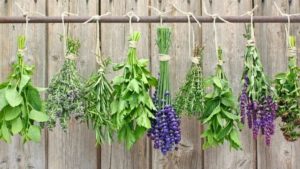 8 Herbs and Their Healing Properties
8 Herbs and Their Healing Properties
Many herbs have been used for their medicinal properties all throughout history, and many have now been studied and proven by science to have health benefits.
Medicinal gardens are becoming more common as people learn about these plants. There are powerful herb properties that can ease pain, detox your body, improve memory, and even fight off cancer.
Here I’ve listed 8 wonderful herbs that you should definitely have in your garden or cabinet.
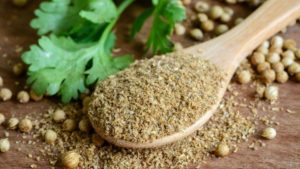 1- Cilantro
1- Cilantro
Cilantro has been a part of many dishes throughout the world. This flavorful herb is either loved, or hated for its taste. But the benefits of consuming cilantro outweigh and ill feelings you have about its taste!
Studies done have shown lowered symptoms of Alzheimer’s, Parkinson’s and seizures. In a study on rats it showed to have memory boosting properties. The most common medicinal use for cilantro though is detoxification.
Cilantro has properties that allows it to bind to heavy metals, and helps break them down, allowing them to be passed through the urine. A study done with cilantro combined with chlorella showed to reduce “ 87% of lead, 91% of mercury, and 74% of aluminum from the body within 45 days”.
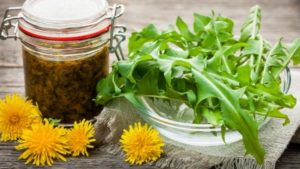 2- Dandelion
2- Dandelion
When you think of dandelion, you probably think of it as a pesky weed. Most people don’t know that this “weed” growing in their yard has many benefits.
The greens are highly nutritious. It is filled with vitamins A, K, C, and E. It also has small amounts of some B vitamins.
But it doesn’t stop there!
There are plenty of minerals, too, such as Iron, Magnesium, and Calcium. Dandelions contain very high levels of beta-carotene, which is a potent antioxidant. It helps protect against cellular damage, which in turn is good for anti-aging.
Who doesn’t want to be younger? Am I right?
Next time you go outside and see some dandelions, don’t spray them with a weed killer. Harvest them for teas and tonics to keep in your medicine cabinet. In Chinese and Native American cultures, dandelion root was used to treat liver and stomach problems. Sometimes it was made into a paste and used to treat skin conditions like acne and eczema since it has anti-inflammatory and anti-itching properties.
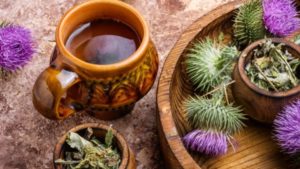 3- Milk Thistle
3- Milk Thistle
If you do decide to grow this plant, you should probably do it in a pot. This powerful herb is known to be invasive in some places. It contains Silybum, a chemical known to help with liver conditions such as cirrhosis. Cirrhosis can be caused by drinking too much alcohol.
It has also been known to help start breast milk production, prevent cancer, help with gallbladder problems and even protect the liver from snake bites. Silymarin, which is found in the plant’s seeds, has antioxidant and anti-inflammatory properties. Silymarin helps to keep toxins from attaching to cells in the liver. It has not been shown to be effective against Hepatitis C.
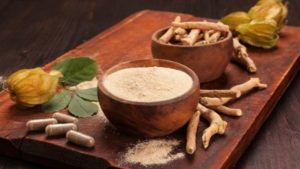 4- Ashwagandha
4- Ashwagandha
Ashwagandha is an ancient herb. It’s been used for many years in ayurvedic medicine. It’s a shrub that grows in India, the Middle East, and parts of Africa.
Its roots and fruits are used for their medicinal properties.
Practitioners would use this plant to increase energy and reduce stress and anxiety. In ayurvedic medicine, it was used to help maintain youth.
It is mainly known, though, for its stress-reducing properties. A 1997 study showed it help reduce cortisol in patients with anxiety. A 1995 study showed it
helped alleviate stress caused by morphine withdrawal.
Stress is known to cause immunosuppression. So since ashwagandha helps alleviate stress, it is helping to support the immune system. It can also strengthen and tone the nervous system and is known to improve concentration.
The next time you have a big test, or something else stressful going on in your life, reach for your ashwagandha.
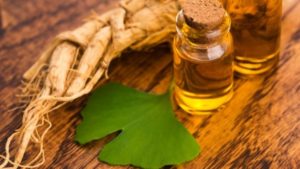 5- Ginkgo Biloba
5- Ginkgo Biloba
The Ginkgo Biloba tree is one of the oldest species of trees known. Medicines and teas are usually made from their leaves. Make sure not to consume raw or
roasted Ginkgo seeds because they are poisonous.
Ginkgo is full of flavonoids, which have strong antioxidant properties, and terpenoids, which improve circulation. Ginkgo has been used in many clinical trials to test its effects when used on people with dementia. The test showed it had a beneficial impact over the placebo on cognitive performance
and activities of daily living. Besides dementia, it has also been used to treat Alzheimer’s, anxiety, schizophrenia, low blood flow to the brain, blood pressure problems, PMS, and erectile dysfunction.
 6- Valerian
6- Valerian
Keeping calm when under stress can be a very difficult thing to do. Valerian root can help you with that. For 2,000 years, the plant has been used in ancient medicines across the world.
The flowers were used as a perfume, And the roots were used in medicine. During WW2, it was commonly used as a sleep aid, but then people switched over to pharmaceuticals.
Valerian root contains valerenic acid, which inhibits the breakdown of GABA in the brain. Low levels of GABA can lead to anxiety or mood disorders, epilepsy, and chronic pain. The results are feelings of calmness and tranquility. It is often compared to how valium and Xanax work.
You can use valerian to help decrease anxiety, promote sleep, or calm nervousness during stressful times.
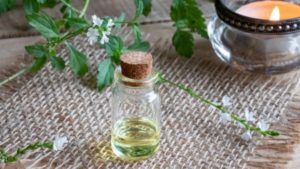 7- Vervain
7- Vervain
In ancient times Vervain was known as a divine herb. Many legends are surrounding it. The ancient Egyptians said that it was grown from the tears of a goddess.
Some say it was used on the wounds of Jesus after he was taken down from the cross. This is why “Herb of the Cross” is one of the nicknames for Vervain.
Hippocrates is said to have used it for fever and plague. The Celtics used it to treat gum problems. They would boil it in water and use it as a mouthwash.
Studies done on animals show Vervain may help inhibit tumor growth and promote the death of cancer cells. Another study done on rats showed Vervain can help significantly improve the brain after a stroke. This is due to properties in the plant that promote the development of new blood vessels—helping to supply the brain with more oxygen.
 8- Kava
8- Kava
Kava is a very popular social drink in the south pacific. It is most commonly used for ceremonies as a beverage to promote relaxation. It has also been used to help with anxiety, restlessness, and insomnia.
Kava affects the nervous system, and the plant’s property responsible for this is called Kava-lactones. It slows down the messages traveling between the brain and body, producing a calming effect. It is said to be comparable to the effects that drinking alcohol will give you.
Kava, sometimes called Kava Kava, can affect everyone differently based on weight, tolerance, how much is consumed, and what else you may have taken around the same time.
You may also experience feelings of sleepiness, happiness, numbness in the mouth, loss of appetite, relaxed muscles, ease of pain and it has even been known to prevent seizures.
Kava should be taken carefully; there have been some health concerns with long-term use. So, there you have it!
Final Thoughts
These herbs will make a difference in your life. You can’t grow all of them in your garden, but you can find them online, in pill form, tinctures, or as whole plants. It’s amazing how common natural healing is becoming!

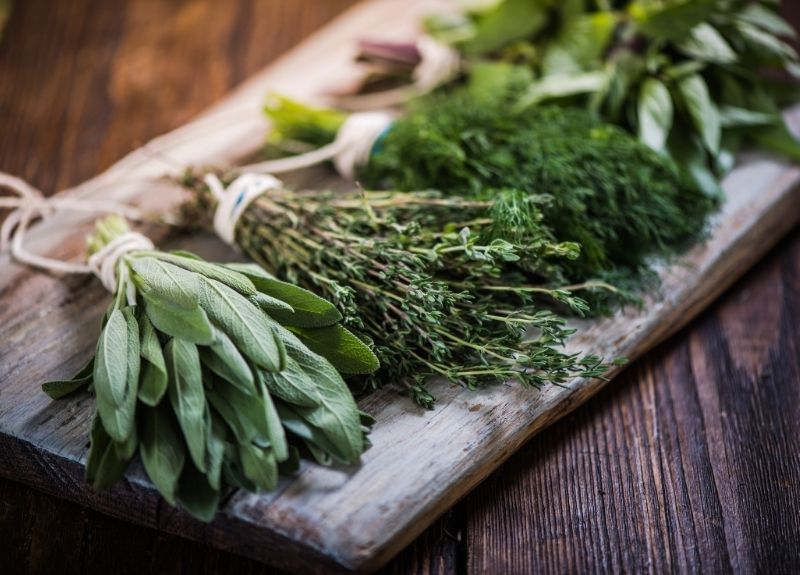
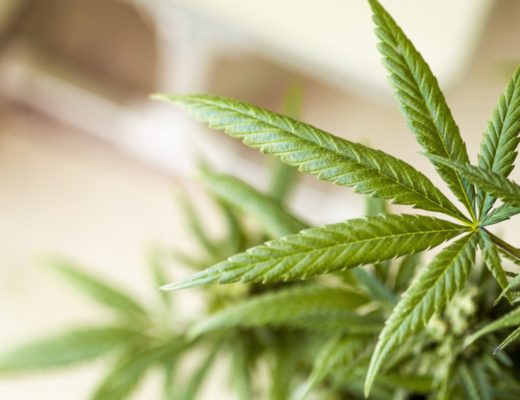


No Comments